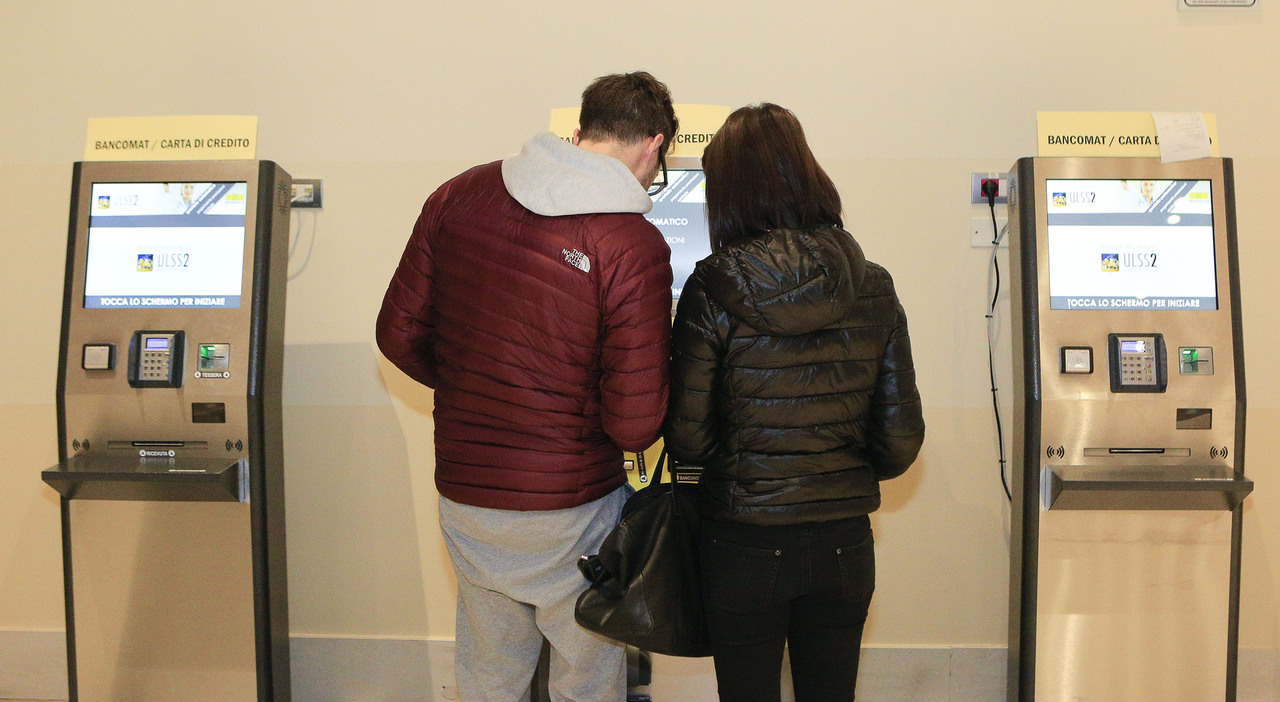The law in this sense is clear, there is no room for interpretation: anyone who enters the emergency room and after the first triage receives the “white code” (ie the condition of lesser clinical severity), is required to pay the ticket. They are 25 euros. The emergency doctor fills in the forms, gives the patient the payment sheet and the latter should settle the bill at the exit, also using the automatic cash machines, now common in all hospitals in the region. It all seems linear. But the use of the conditional was not used by chance. From what filters from departments throughout Friuli Venezia Giulia, in fact, a picture emerges that is both disconcerting and alarming: practically no one pays the ticket. And the health system loses thousands of euros every day. Too bad that for the other services (exams, visits) the ticket often has to be paid in advance. A hole, that of the Emergency Room, which amplifies even more a situation of distinct difficulty, since the payment of the ticket should discourage – in the original programs – the crowding of the emergency departments for disorders that can also be treated elsewhere.
<!–
#correlati article figure .player_clicker::after {
color: #fff;
background-color: rgba(0,0,0,0.6);
border-radius: 50%;
display: block;
text-align: center;
font-size: 16px;
line-height: 40px;
width: 40px;
position: absolute;
top: 50%;
left: 50%;
margin: -20px 0 0 -21px;
}
#correlati article figure .player_foto_clicker::after {
color: #fff;
background-color: rgba(0,0,0,0.6);
border-radius: 50%;
display: block;
text-align: center;
font-size: 20px;
line-height: 40px;
width: 40px;
position: absolute;
top: 50%;
left: 50%;
margin: -20px 0 0 -21px;
}
–>
THE FACTS
Not all white codes have to pay the ticket. This is a premise that does not shift the core of the problem by one iota. In fact, there are particularly weak groups (or rather considered as such by the health system) who always have access to the emergency room free of charge. But all the others don’t. And for the local health economy it is a real drain. The rumors – anonymous to protect people’s work – come from all the hospitals in the region. Yes, because the picture is the same everywhere. The payment of the 25 euro ticket for access with a minor ailment to the emergency room remains practically a dead letter. “Nobody pays”, is the widespread testimony in Friuli Venezia Giulia. And at this point it is logical to investigate the reasons. How is it possible that a rule of the State is so widely disregarded even by the same “controllers” who should ensure its compliance?
THE REASONS
The emergency wards are in distress. It has been pointed out several times and there is no lack of testimonies. And the lack of staff in the aisle, combined with the crowding of the emergency areas, also entails a substantial “forgetfulness” regarding the obligation to pay the 25 euro ticket. “Colleagues massacred by bureaucracy – is the widespread testimony heard in the emergency department – are unable to follow this task as well”. The emergency workers, then, are under constant “threat” from patients less and less “patient”, who also protest for the payment of the ticket. Complaints are daily, even in this sense. Then a patchy picture emerges: some doctors do the procedure correctly, others can’t do it for a mere matter of time.
L’ITER
When an emergency room doctor fills out the forms to make a non-serious patient pay the 25 euro ticket, an instant procedure is activated. And of course there would be checks. Who should perform them? Certainly not the emergency room doctor, who has much else to do. To deal with the problem should be the health authorities, with their own staff. But it would be unthinkable – even from a logistical point of view – to use resources outside the emergency room to ensure a true timely verification of payments. And in fact, control ends up not entirely existing. Then there is a third case, now quite rare: the patient who is called to pay with the correct procedure. At that point the disputes flooded. In fact, there are numerous calls that arrive at hospitals to try – even after several days from accessing the emergency room – to have the obligation to pay revoked. So more extra work for the staff already in distress. The point, however, is also economic: every day in the region there are hundreds of visits to the emergency room. Each white code would guarantee 25 euros, for a total of thousands of euros burned every 24 hours.
